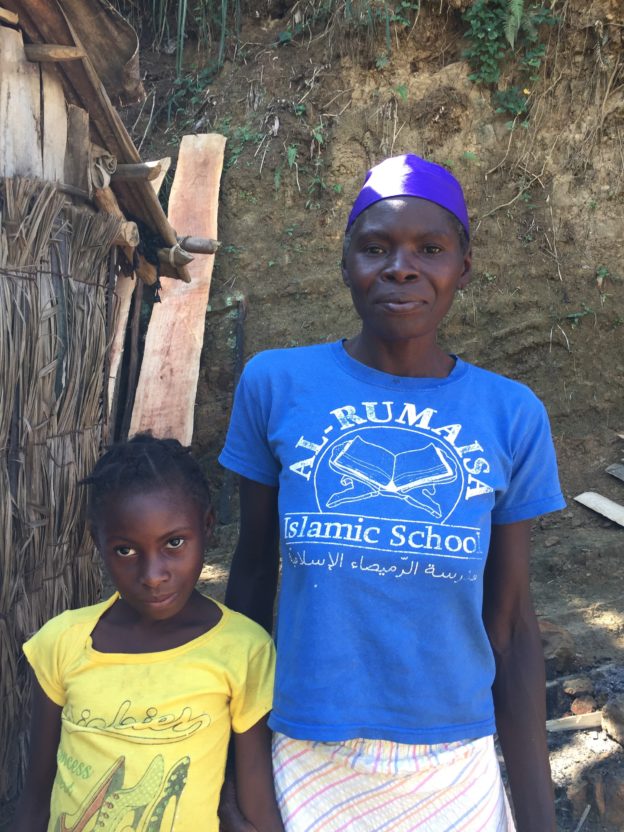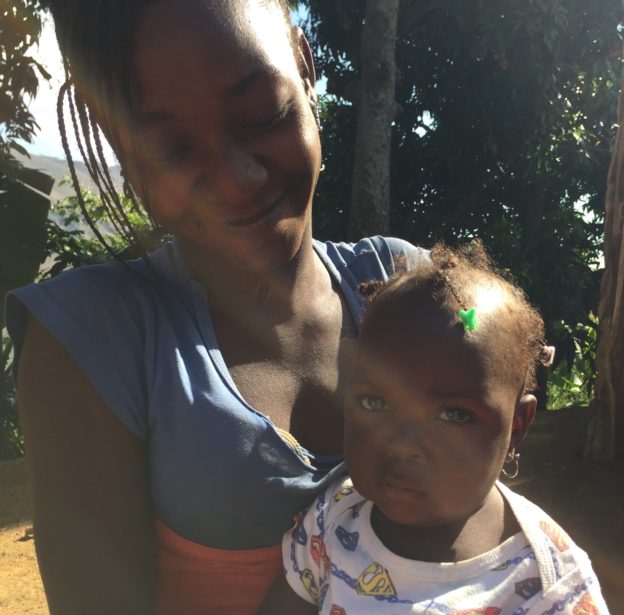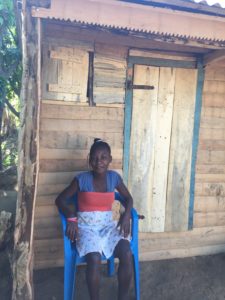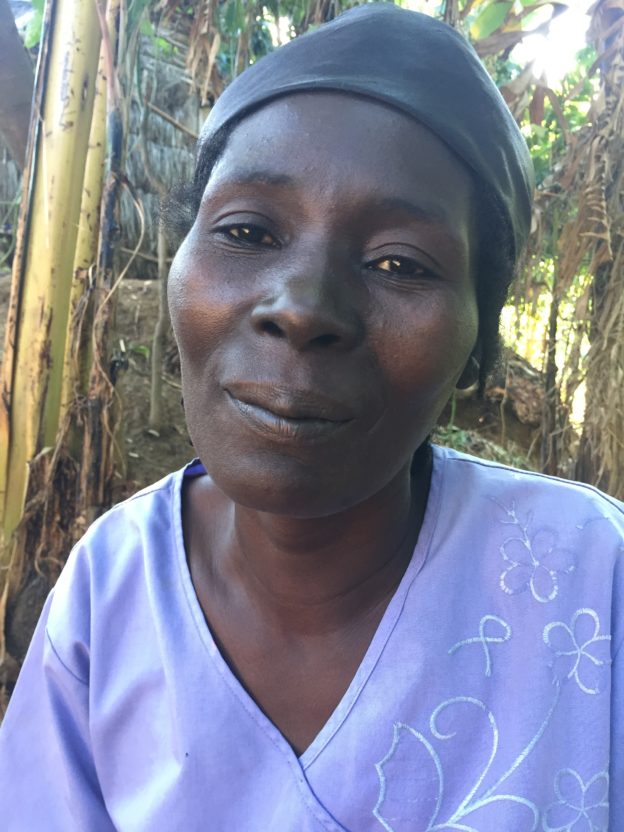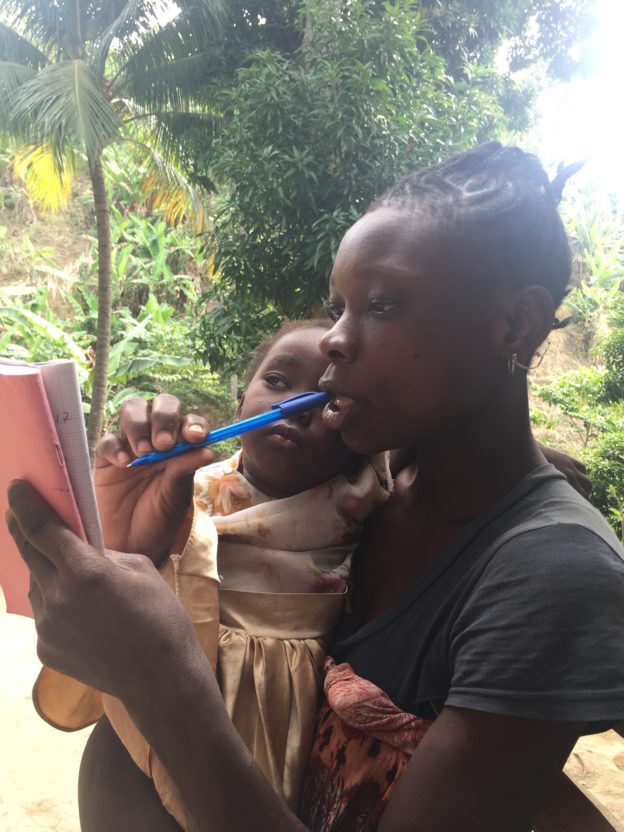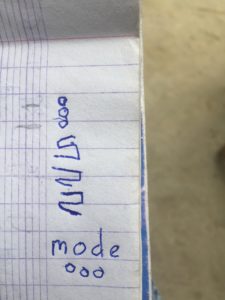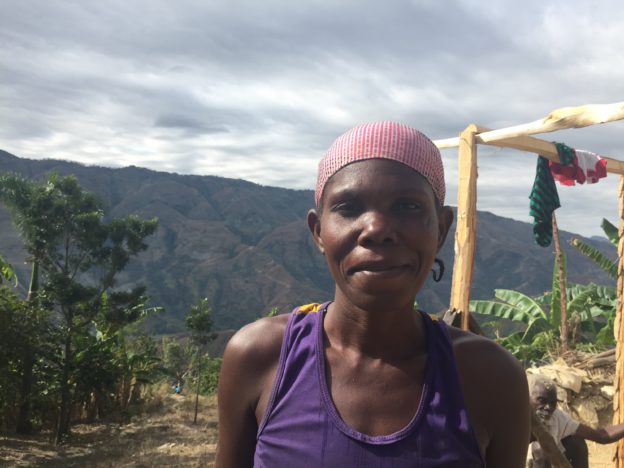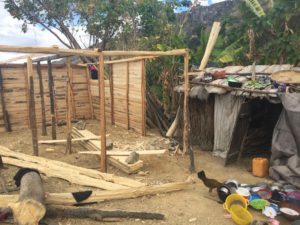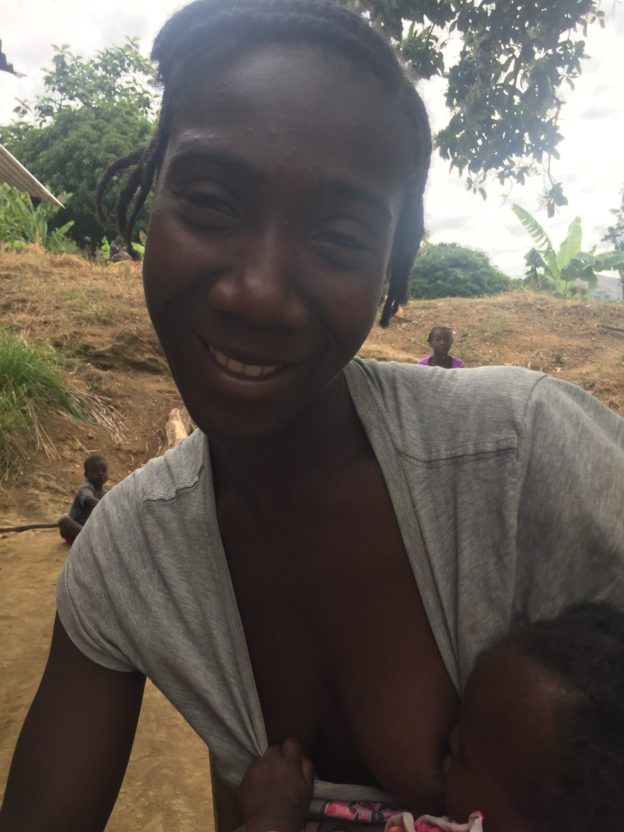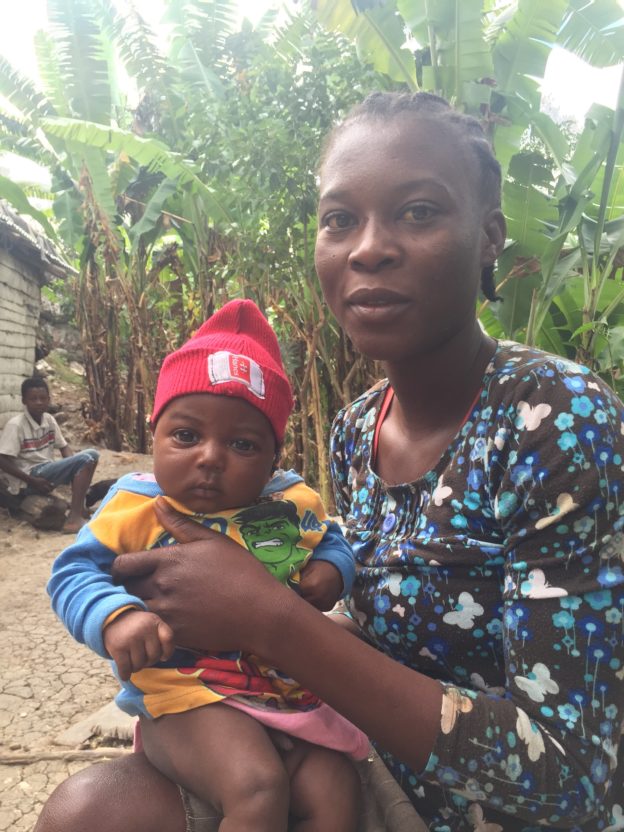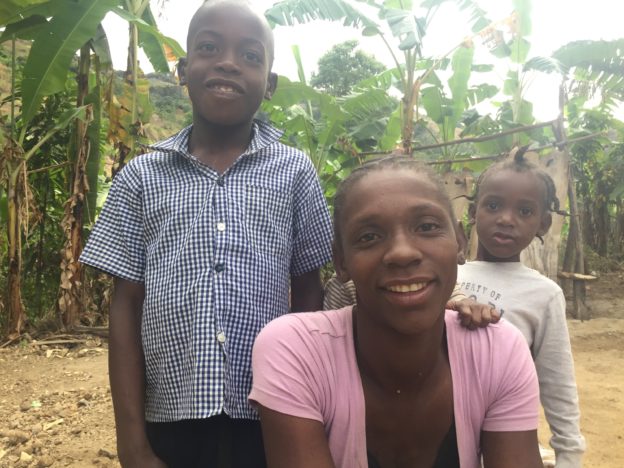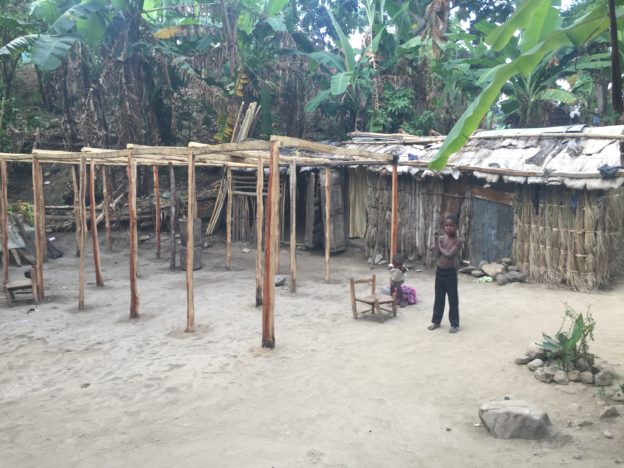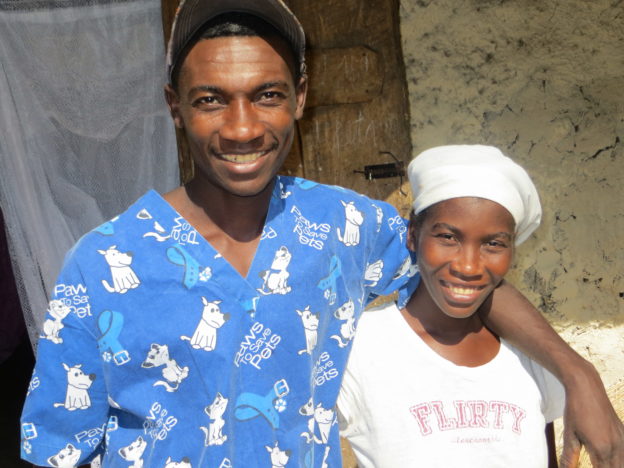Louisimène has a nickname. If you want most of her neighbors to tell you whether they’ve seen her, you have to ask for Mizè. They’re not sure who Louisimène is. “Mizè” means misery. She explains that her mother gave her the name because it was an especially difficult pregnancy. Her husband’s nickname is harder to understand. They call him “Apretan,” which means after time, and not even Louisimène really knows why.
Like several of the women in Kolonbyè, Louisimène decided that her home could not be repaired. The lumber was rotten. It wouldn’t have been about to support a tin roof. But the little hillside clearing her home was built on doesn’t have room for another house, and since much of the hillside is solid rock it would be hard to enlarge the clearing. So she and her husband tore down their home, and began to set up their new one on the spot where their old one stood.
It meant building a little shack for them to live in while they work on the new house, and Louisimène is happy with the care her husband took with what they hope will be a temporary dwelling. It’s only one room but he took the time to set up a frame that is solid and straight and carefully made tight buddies of dried palm leaves that he tied together vertically as walls. He collected and prepared good strips of palm-tree seedpods, or tach, to use as roofing material. Louisimène works hard to keep the shack clean as long as they have to live in it, and she took the trouble to hang curtains. She wants it to feels like a home.
She’s concerned about finishing the new house, though. She will need to buy more nails — CLM provides nails for the roof and the frame, but not for the walls — and she plans to do that with money from her weekly stipend, even though it is about to run out. But she still needs to buy some lumber, too, and she’s not sure when she’ll be able to do so. “We don’t have the money to buy palm trees,” she says.
And she’s concerned about her daughter as well. Though she managed to send her to school this year, the girl is now missing days for the second time in the last few months. Her shoes are torn, so she has nothing to wear on her feet, and can’t go barefoot. The first time the girl tore her shoes, Louisimène bought a new pair. The kind she bought are called “boyo,” and they’re made of cheap plastic. A pair costs about 100 gourds, or less than $1.50. But money is tight with her new house still unfinished, and she hasn’t decided to by another new pair yet.
Despite it all she’s happy about the progress she’s making. “I used to get wet when it rained, and soon I’ll be able to stay dry. And now I have goats and a pig to take care of.”
